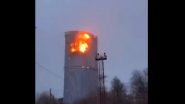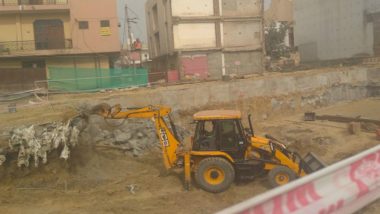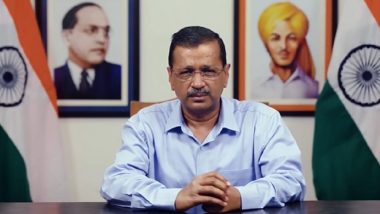New Delhi, November 10: With the pollution level and air quality in Delhi getting worse by the day, the Environment Pollution (Prevention and Control) Authority (EPCA) for the National Capital, has extended the ban on industries using coal and biomass including brick kilns, entry of truck traffic to Delhi and construction activities till November 12. However, the ban does not include power plants.
In a letter to the Delhi Chief Secretary Anshu Prakash, chairman of the (EPCA, Bhure Lal on Saturday also asked the Delhi government to extend the ban in the Mundka Industrial Area and in the operations in the plastic factory complex till November 12.
It was also agreed that during this period New Delhi Municipal Council (NDMC) will ensure that wastes are being physically removed and taken to a disposable site so that it can be incinerated properly. Supreme Court Ban on Construction in Some States, UTs to Hit Labourers, Housing Sector: Realtors.
It has been found out that the 12000 tons of industrial and plastic waste have been removed till November 5 since EPCA directed NDMC to remove the waste lying on roadside on October 27. However remaining industrial wastage also needs to be removed.
EPCA has also asked to file a compliance report at the earliest on steps taken to ensure that there is systematic collection and transportation of waste material on regular basis.
On November 9, Central Pollution Control Board (CPCB) Task Force has informed EPCA that given the prevailing adverse condition in National Capital Region (NCR) where the air quality fluctuates between 'poor' and 'very poor' the ban shall stay on till further review of the situation. Earlier, the ban was imposed till November 10.
The air quality on Saturday evening at 5 pm was in "severe category" (PM2.5: 250 - 300 or PM10: 430 - 500). The PM 2.5 on Saturday evening was 259 while PM10 was 414. During this level, the action plan includes closing down of brick kilns, hot mix plants and stone crushers. It also includes shutting down of Badarpur power plant and maximizing generation of power from existing natural gas based plants to reduce operation of coal based power plants in the NCR.
The action plans also calls to intensify public transport services and introduce differential rates to encourage off -peak travel besides increasing frequency of mechanised cleaning of road and sprinkling of water on roads and identify road stretches with high dust generation.













 Quickly
Quickly





















